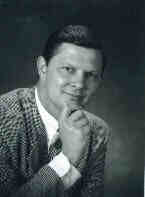
D.H. Lawrence presents one of the most profound ironies of life man can ever experience in his “The Rocking-Horse Winner.” I like to think of it as the growing up irony. Lawrence presents the seemingly backwards scenario’s of life in that the child was the mature entrepreneur and the parents were the naïve life wasters. In life, we expect the child to be the naïve passive person who accepts with whatever is handed to him while the parent is expected to take control of life and make things happen.
One would expect the parents of a child who is a minor with economic struggles to take control of their circumstances and make life better than it has become. One would expect that the parent should be the responsible one to speak faith and optimism that generates security for his or her child. One could easily accept a child to speak insecurities and question his or her future. However, in Lawrence’s “The Rocking-Horse Winner” we read the Irony of Life where the roles of responsibilities are reversed.
Paul’s mother is always speaking failure, fear and faithless words that generate fearful imaginations in Paul’s life. Such disparaging words from Paul’s mother caused Paul to hear voice from the house and their home life of never having enough. Such faithlessness normally causes children to become fearful neurotics wasting away in insecurities. However, with Paul, he took on the role of responsibility and overcame poverty while his parents passively surrendered to the failure of the whatever.
Paul, the seven to ten year old in Lawrence’s “The Rocking-Horse Winner” took upon him the role of making an income to pull the household from ruin while his parents only grew worse in economic failure. Paul appear to remain a child in insisting to ride his baby rocking horse while all along he developed a winning strategy to win the bets at the horse races from the childish saddle. Ironic, a child seated on the back of a toy takes life in his own hands and generates over a half of million dollars for his mother in a few short years, while his parents do little to nothing but complain about financial “bad luck” (Literature, DiYanni, McGraw Hill, 2002, pg. 97).
Edgar V. Roberts and Henry E. Jacobs explains that “Irony refers to language and situations that are inappropriate or opposite from normal expectations” (Literature, Roberts & Jacobs, Prentice Hall, Englewood, 1992, pg. 64). The irony of life seems to never hand us what we expect. If it did, I must say life would be too boring and predictable. Success and heroes would not be the aspired goal, but rather maintain the status quo. Extra ordinary people are those who define to us the true irony of life. They do the unexpected and accomplish the unbelievable. Ironic isn’t it that a child would be the responsible adult and the parent would become the whining child?

No comments:
Post a Comment